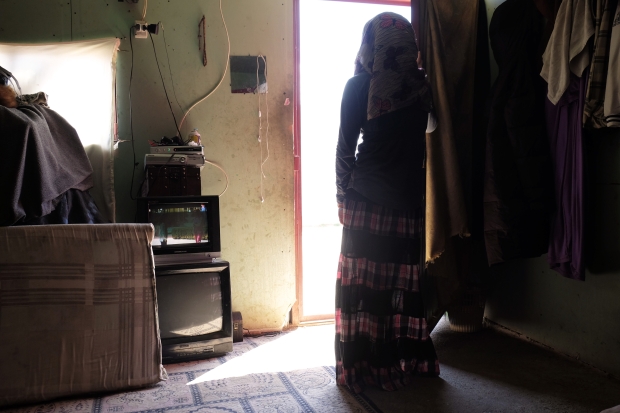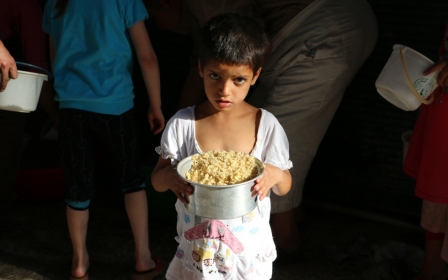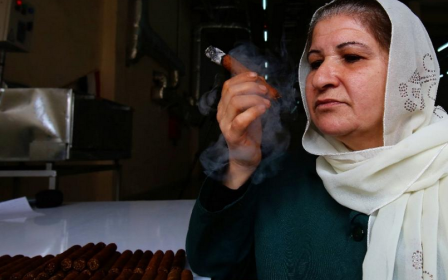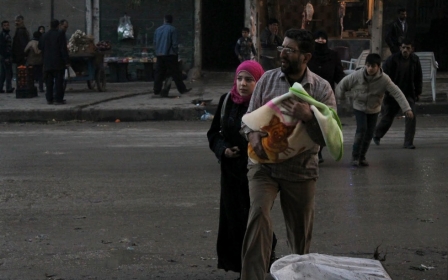Many child marriages among Syrian refugees driven by economics
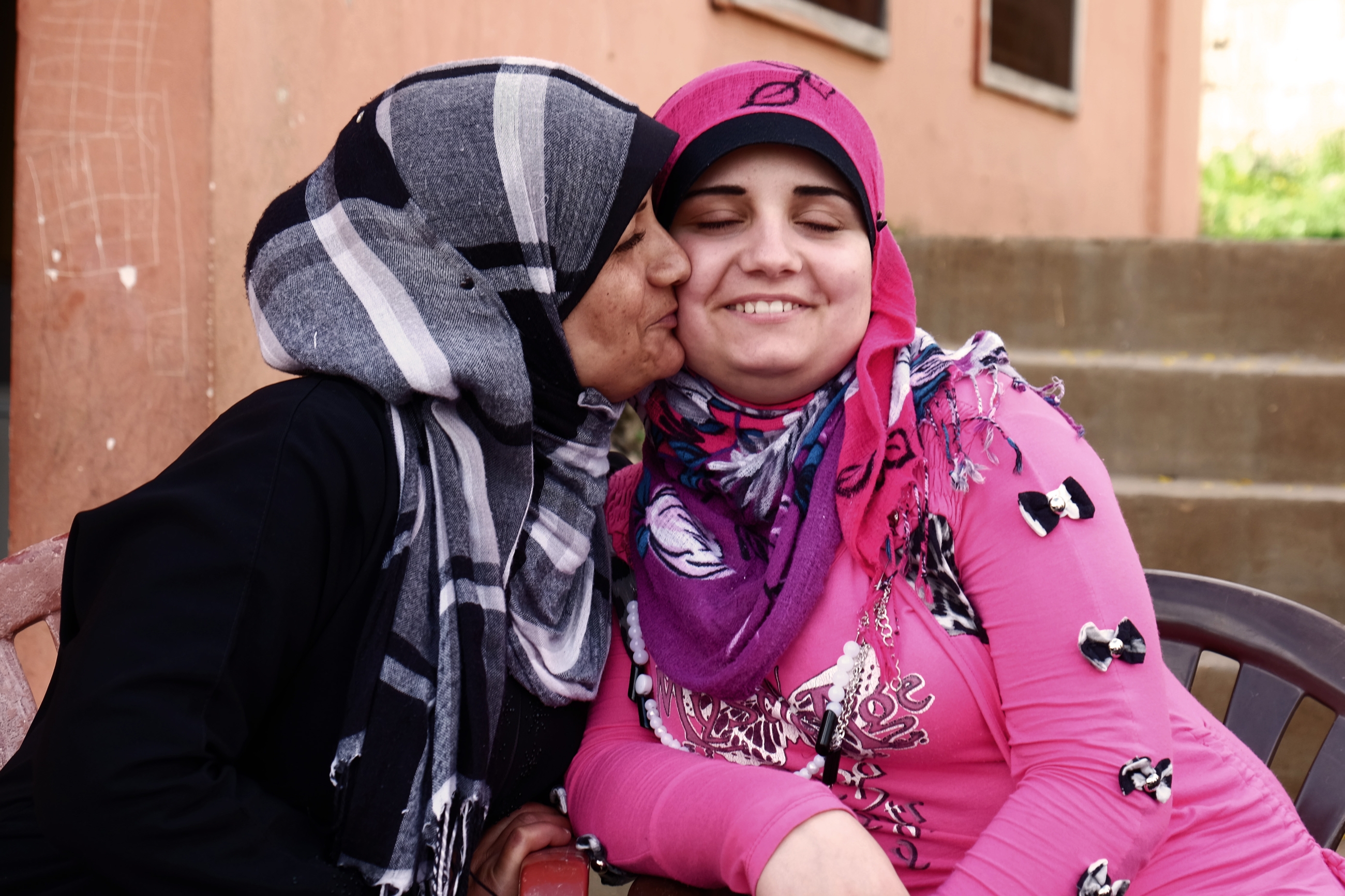
When doctors told Noor that she lost her unborn baby due to the beatings inflicted on her by her husband, surprisingly she felt relief. Having a baby would have condemned her to remain with her husband and by that time she was already planning to divorce him. Still short of her 15th birthday, she had been married for around eight months.
Sitting in the middle of the metallic container where she lives in Lebanon’s Bekaa valley, Noor recounts the story of her painful marriage. As the Syrian civil war swept into her hometown of Hama in Syria’s north-western Idlib province, Noor’s parents arranged to marry her off to a relative eight years her senior, who was in Lebanon. A $400 dowry helped to facilitate the deal. At that time Noor was only 13 years old and was still studying in school.
“At the beginning, he was nice but after three months, his behaviour changed. He started beating me,” Noor recounted. After a year and a half of abuse, and thanks to the support of an older neighbour, she asked for a divorce despite her relatives’ attempts to convince her to remain silent and to endure the marriage. She finally got it.
Since the Syrian civil war started, several organisations and agencies have attempted to draw attention to the increased number of early marriages among Syrian refugees in Lebanon. In 2014 a UN survey warned that early marriage has become prevalent at “rates higher than the averages in Syria before the humanitarian crisis erupted, with 18 percent of surveyed female youth aged 15-18 years being married.”
In Jordan, according to a report conducted by the international NGO Save the Children titled “Too Young to Wed”, one in every four marriages between Syrian refugees in the country involves a girl under the age of 18. In 2011 the figure stood at 12 percent. In Iraq the number of married underage Syrian girls has also increased, with further cases also reported in Egypt and in Turkey.
Gains from child marriages
Maria Semaan, programme coordinator of the Child Protection Program for Lebanese women's rights NGO KAFA Violence and Exploitation, identified that early marriage is rooted in religious and cultural traditions.
“Early marriage is related to traditions and culture,” said Semaan. “All the religions here allow it, so it has become a tradition or at least culturally accepted. At the same time it is considered a way to prevent sexual intercourse before marriage.”
But Semaan also explains that “in the case of Syrian refugees, there is also an economic factor.”
Job opportunities for Syrian refugees in hosting countries are scarce and with Syria’s conflict now in its fifth year, many families have exhausted their resources and are suffering from hardships. The marriage of a daughter is perceived to be a way of alleviating potential poverty and at the same time can provide a form of income as a result of dowry money.
“These parents feel they are not doing anything wrong towards their child. For them, it is legal,” Semaan explained.
However, international organisations such as Save the Children report that child marriage “often denies a girl her right to an education and leaves her far less able to take advantage of economic opportunities. As a result, child brides – who are more likely to come from poor families in the first place – are likely to remain poor.”
Psychological and physical impact
Such an assessment rings true in the case of Noor who explains that she was forced to leave school after her marriage. In her new marital environment, she became socially isolated, far from her familiar surroundings and peers.
“It’s a psychological impact,” said Semaan. “You miss your childhood, you miss your friends, you have many responsibilities that no one has taught you. It's hard when you are still a child to take care of another child. Also you must be mature to live with another person and to develop with him a relationship of equality. Early marriage deprives the girls of the opportunity to be equal and to grow up in a healthy way.”
Further problems are caused by the physical risks related to early pregnancy. The World Health Organisation states that “pregnancy and childbirth complications are the second cause of death among 15- to 19-year-old girls globally” whilst the risk of the new-born babies of adolescent mothers dying are also “substantially higher.”
Deeba, also from Idlib, was panicked and scared on the first night she spent with her husband two years ago. She was 18 but no one had told her anything about sexual relations.
“It was painful,” she said quietly, remembering the occasion. Her husband was nine years older than her and they did not know each other before the wedding.
Although Deeba was not a minor, she was obliged by her parents to get married “due to the bad economic situation of the family and the political circumstances.” Like Noor, Deeba and her husband live in an informal refugee camp in the Bekaa valley.
“I wanted to continue my studies and become a lawyer,” Deeba said, “but I immediately became pregnant. Now I am trapped because of my son.”
Set in tradition, bound by poverty
Sabah al-Hallak, a veteran activist from the Syrian Women’s League, reports that the reasons behind the increase in early marriage among Syrian refugees mainly stem from “poverty, religious traditions and a desire to protect the girl from sexual abuses.” Refugees and NGOs report on the frequent sexual abuses against refugee girls, especially in tented settlements.
Al-Hallak prefers the term “forced marriage” over “early marriage” because the main issue, in her opinion, is that “in all cases, it is not the girls' decision.”
Mira Faddoul, programme officer of the KAFA Child Protection programme, argued that forced marriages and marriages involving minors result from “the patriarchal mentality present in the region.”
“Men are the ones used to taking all the decisions and are even entitled to decide for their daughters,” Faddoul said.
Child marriage is a contravention of the Universal Declaration of Human Rights and the Convention on the Rights of the Child.
However, currently in Lebanon, as in Syria, personal status laws are dependent on the individual’s faith. In Syria, all the religions accept early marriage, noted Hallak. For the Muslim majority population, the minimum age for marriage is 18 years for boys and 17 years for girls. But early marriage is allowed if authorised by guardian consent. In this case, the minimum age is 15 years for boys and 13 years for girls.
The discretion to decide if a marriage can take place lies with the religion authorities, even if the spouses are minors. For such reasons, KAFA advocates to set the legal age of marriage at 18 years old in Lebanon.
The issue is also identified as a concern by the United Nations High Commissioner for Refugees (UNHCR). Dana Sleiman, the organisation’s public information officer in Lebanon, explains that UNHCR focused on the vulnerable, low-income communities where child marriage is more common due to the effects of poverty.
“We are trying to target them with assistance, so they don't have to resort to these solutions,” Sleiman said. “We are also trying to raise awareness among the refugees about available services and solutions outside child marriage.”
But Faddoul says that raising awareness can have its pitfalls.
“We try to do it in a very subtle way because they [the families] may consider that we are coming with western ideas that can break up the families,” explains Faddoul.
“Even the mothers, who were married early themselves, usually [will] tell you that they weren't happy with it. But then, some of them do it again to their daughters, because it’s the tradition - even if they know that it's not their right and it's not fair."
Recovered youth
Hallak explains that forced marriage is more common both in the north and the southeast of Syria. She also notes that due to the historically close relationship between Lebanon and Syria and their populations, Syrian families tend to marry their daughters to Syrian or Lebanese boys. In contrast, in the Zaatari refugee camp in Jordan, many “Gulf men go there to marry young girls paying a lot of money to their parents,” in what is being viewed by NGOs and watchdogs as a form of human trafficking.
Aaliya’s mother managed to break off her 12-year-old daughter’s engagement, even after she had played a hand in arranging it.
Hailing from the province in Aleppo in northern Syria, Aaliya’s family were forced to move to Lebanon. Once there, her mother did not approve of Aaliya’s fiancé’s attitude, and pushed to end the engagement.
She admits that had they remained in Syria, such a decision would not have been possible due to the overwhelming pressure of traditions, customs and family norms.
“Being in Lebanon far from our community allowed us to do it,” she said. “Now Aaliya has recovered her youth."
Middle East Eye propose une couverture et une analyse indépendantes et incomparables du Moyen-Orient, de l’Afrique du Nord et d’autres régions du monde. Pour en savoir plus sur la reprise de ce contenu et les frais qui s’appliquent, veuillez remplir ce formulaire [en anglais]. Pour en savoir plus sur MEE, cliquez ici [en anglais].


